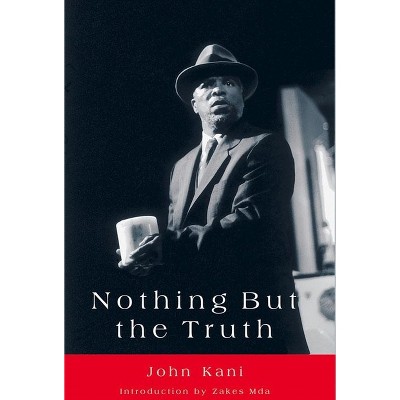Sponsored

Cast in a Racial Mould - by Edward Webster & Michael Burawoy (Paperback)
$20.99
In Stock
Eligible for registries and wish lists
Sponsored
About this item
Highlights
- First published by Ravan Press in 1985, Cast in a Racial Mould was a pioneering book.
- About the Author: Edward Webster (Author) Edward Webster is Distinguished Research Professor in the Southern Centre for Inequality and founder of the Society, Work and Development Institute Studies at the University of the Witwatersrand, Johannesburg Michael Burawoy (Author) Michael Burawoy is professor at the University of California, Berkley.
- 340 Pages
- Political Science, Labor & Industrial Relations
Description
Book Synopsis
First published by Ravan Press in 1985, Cast in a Racial Mould was a pioneering book. It is now republished by Wits University Press with a new foreword by Michael Burawoy and with support from the National Institute for the Humanities and Social Sciences.
Entering what Marx called the hidden abode of capitalism; the labour process; this book analyzes the nature of work and worker resistance in the metal industry which lies at the core of South Africa manufacturing industry. In an introductory chapter Webster points out that most studies of the labour process have neglected worker resistance. He challenges Braverman depiction of mass production as a juggernaut which inherently imposes progressively tighter controls on workers, and points to two forms of worker resistance which have been important in the history of South Africa foundries. Discussing the first of these in Part I, he shows how resistance to deskilling on the part of white craft moulders gave rise to a distinctive racial hierarchy of control in the foundries. Using race as a last line of defence against machinofacture assault on their craft privileges, the white moulders effectively became supervisors of semi-skilled black labour;The collapse of this form of control was precipitated by the rise, in a South African foundry context, of the second form of resistance; increasingly confident bargaining by black semi-skilled workers in the wake of mechanization and the emergence of independent black unions. This is the focus of Parts II and III of the book. The onset of popular struggle in the townships from 1976 onwards forced the state, through a process that began with the Wiehahn and Riekert commissions, to embark on an attempt to incorporate black unions in a deracialized industrial relations system. Webster analyzes the interplay between the transformation of the labour process and the crisis in the system of racial capitalism as a whole to show how worker organizations, in resisting the state incorporative strategy, have begun to develop a working class.About the Author
Edward Webster (Author)
Edward Webster is Distinguished Research Professor in the Southern Centre for Inequality and founder of the Society, Work and Development Institute Studies at the University of the Witwatersrand, Johannesburg
Michael Burawoy (Author)
Michael Burawoy is professor at the University of California, Berkley. He was President of the International Sociological Association (ISA) until 2014.
Dimensions (Overall): 8.5 Inches (H) x 5.5 Inches (W) x .76 Inches (D)
Weight: .87 Pounds
Suggested Age: 22 Years and Up
Number of Pages: 340
Genre: Political Science
Sub-Genre: Labor & Industrial Relations
Publisher: Wits University Press
Format: Paperback
Author: Edward Webster & Michael Burawoy
Language: English
Street Date: May 1, 2025
TCIN: 1005685902
UPC: 9781776149612
Item Number (DPCI): 247-47-7086
Origin: Made in the USA or Imported
If the item details aren’t accurate or complete, we want to know about it.
Shipping details
Estimated ship dimensions: 0.76 inches length x 5.5 inches width x 8.5 inches height
Estimated ship weight: 0.87 pounds
We regret that this item cannot be shipped to PO Boxes.
This item cannot be shipped to the following locations: American Samoa (see also separate entry under AS), Guam (see also separate entry under GU), Northern Mariana Islands, Puerto Rico (see also separate entry under PR), United States Minor Outlying Islands, Virgin Islands, U.S., APO/FPO
Return details
This item can be returned to any Target store or Target.com.
This item must be returned within 90 days of the date it was purchased in store, shipped, delivered by a Shipt shopper, or made ready for pickup.
See the return policy for complete information.
Trending Non-Fiction

$19.31
was $20.98 New lower price
4 out of 5 stars with 65 ratings

$18.28
was $19.58 New lower price
4.7 out of 5 stars with 17 ratings

$4.59
MSRP $7.99
Buy 2, get 1 free select books
4.8 out of 5 stars with 123 ratings

$6.20
MSRP $10.95
Buy 2, get 1 free select books
4.8 out of 5 stars with 33 ratings

$7.09
MSRP $9.99
Buy 2, get 1 free select books
4.9 out of 5 stars with 46 ratings












